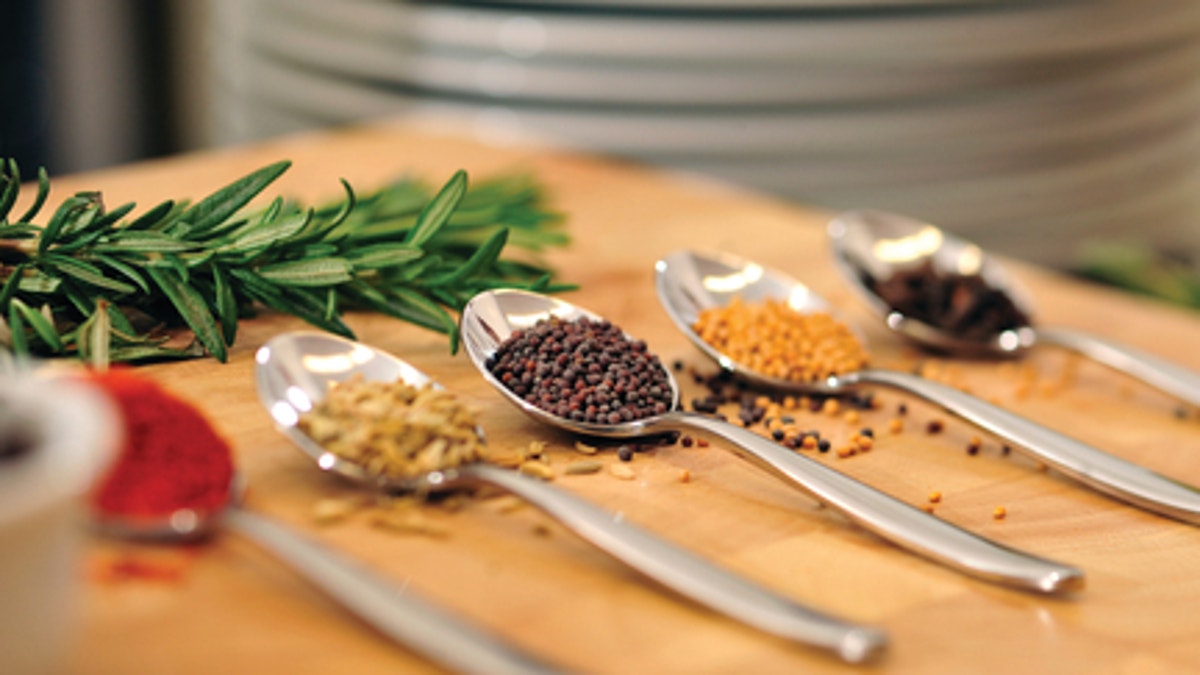
Our kitchen cabinets are filled with spices, yet we tend to take them for granted. Spices can do a lot more than flavor your dinner. Some spices can help reduce inflammation, stop a bloody nose, or soothe an achy stomach. Here are some super spices that pack more health benefits than you might have known.
Turmeric
Lovingly referred to as the “queen of spices,” turmeric boasts antioxidant, antiviral, antibacterial, antifungal and anti-inflammatory properties. Curcumin, the active compound in turmeric, is what makes this spice so special and turmeric happens to be one of the only readily available, edible forms of it. A 2007 study also showed curcumin to have anticancer properties, with the potential to fight malignant diseases, diabetes, allergies, arthritis and Alzheimer’s disease.
Since it tends to lose its punch fairly quickly, make sure you buy this spice in small quantities or opt for fresh turmeric root. Turmeric goes well in lentil dishes, curried chicken salads, or over a green salad and adds extra healing power to homemade chicken soup when you’re under the weather.
Cinnamon
According the American Diabetes Association, regular consumption of between one and six grams of cinnamon helps reduce blood glucose, triglyceride and total cholesterol levels in people with type 2 diabetes. It can also help manage short-term spikes in blood sugar, making it a perfect addition for high carbohydrate foods such as oatmeal and rice pudding, which tend to spike blood sugar levels.
Cinnamon also contains strong antiviral, antibacterial and antifungal properties making it an excellent addition when trying to fight a cold. Besides adding it to your food, try sprinkling some in your coffee or even using it in a face mask combined with a little coconut oil to help fight acne.
Cayenne pepper
This powerful spice has been used as a healing spice throughout history. Capsaicin, which gives the spice its kick, can boost metabolism, helping to burn extra calories as well as increasing enzyme production. It is thought to act as an anti-inflammatory and is so powerful that capsaicin can be found as the active ingredient in both over the counter and prescription ointments for arthritis and muscle pain.
Using this spice regularly can add some kick and anti-inflammatory benefits to your diet. It’s also the best spice to keep on hand if you frequently get nosebleeds - one teaspoon of cayenne pepper mixed into a glass of water is believed by some to help stop nosebleeds.
Ginger
While best known to help soothe a queasy stomach, ginger is also thought to help reduce pain and inflammation thanks to gingerol - a chemical found in ginger. If you suffer from arthritis, frequent migraines or menstrual cramps, adding some ginger to your diet just might help reduce the pain. Fresh ginger is more potent than the powdered variety and it makes a delicious addition to herbal teas and baked goods and can even be added to fruit or vegetable juices. Or try making your own ginger oil to treat achy muscles by mixing a few spoonfuls of ginger with sweet almond oil.
Cloves
This is the best spice to have on hand if you tend to suffer from frequent toothaches. All you have to do is put a few whole cloves in your mouth, then gently bite on them to release the oils and move them around to your sore teeth. According to Ayurvedic medicine, clove tea can help reduce, or even prevent, colds while also working as a natural expectorant to get rid of excess phlegm.
While generally safe when used daily, taking some of these spices in very large dosages can have negative side effects. Always check with your doctor before using medicinal quantities of spices so you can find a safe amount for your needs.








































